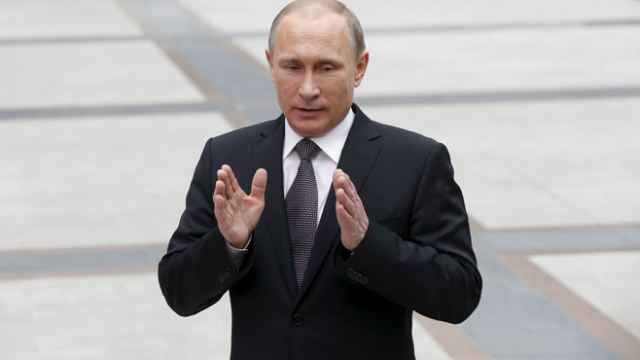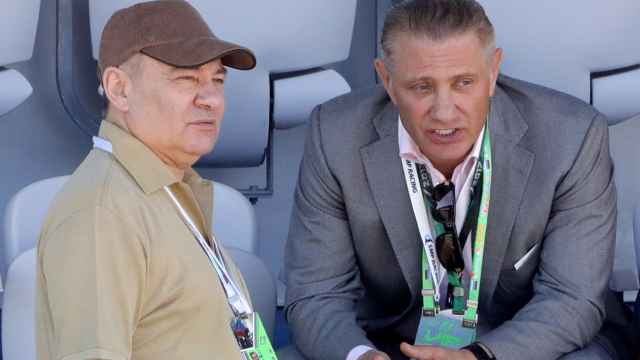Prime Minister Dmitry Medvedev said on Tuesday that Russia was suffering significant economic problems because of international sanctions, but the situation could have been much worse and Russia was adapting.
Referring to Western sanctions imposed last year because of Russia's actions in Ukraine, Medvedev told parliament: "Losses from the restrictions which were introduced are significant."
"According to the estimates of some foreign experts, Russia has suffered losses of 25 billion euros [$26.7 billion] in total, which is 1.5 percent of gross domestic product, and in 2015 it could increase several times," he said in an annual speech to parliament about the government's record.
Medvedev said Russia's economy had contracted by around 2 percent in the first quarter, but that the economic situation could have been far worse and was stabilizing.
He linked the sanctions to Russia's takeover of the Ukrainian province of Crimea a year ago, but said the "historic" step had been justified.
"For many the return of Crimea was the restoration of historic justice, which in its significance is equivalent to the fall of the Berlin Wall, the reunification of Germany or the return to China of Hong Kong and Macau," he said.
Although the economic situation was stabilizing, "there should not be any illusions" about the difficulties, which had been made worse by the collapse in international oil prices and "by several domestic problems that we weren't able to solve."
However, Russia had seen worse in the past and could cope, Medvedev said.
"If external pressure intensifies, and oil prices remain at an extremely low level for a long time, we will have to develop in a new economic reality," he said.
"I am convinced that we will be able to live even in such a reality. The experience of the recent period has shown that we have learned how to do this."
Medvedev said Russian state defense orders topped 1.9 trillion rubles ($35.5 billion) in 2014, helping the defense industry grow despite Western sanctions. Russia sold $15 billion worth of military equipment abroad last year — some 3.2 percent of Russia's total exports — and outstanding defense orders are currently more than $49 billion, he said.
Medvedev also said Russia wants a predictable ruble exchange rate without excess weakening or strengthening of the currency.
"Our currency is strengthening now, which is not bad for a number of sectors of the economy. But that also lowers our exporting capabilities to some extent, so we are interested in the ruble exchange rate to be fully predictable, in avoiding excess weakening as well as over-strengthening of the ruble," he said.
He added that the government was working with major companies to ensure they exchange foreign currency on the market according to a "predictable schedule."
A Message from The Moscow Times:
Dear readers,
We are facing unprecedented challenges. Russia's Prosecutor General's Office has designated The Moscow Times as an "undesirable" organization, criminalizing our work and putting our staff at risk of prosecution. This follows our earlier unjust labeling as a "foreign agent."
These actions are direct attempts to silence independent journalism in Russia. The authorities claim our work "discredits the decisions of the Russian leadership." We see things differently: we strive to provide accurate, unbiased reporting on Russia.
We, the journalists of The Moscow Times, refuse to be silenced. But to continue our work, we need your help.
Your support, no matter how small, makes a world of difference. If you can, please support us monthly starting from just $2. It's quick to set up, and every contribution makes a significant impact.
By supporting The Moscow Times, you're defending open, independent journalism in the face of repression. Thank you for standing with us.
Remind me later.




